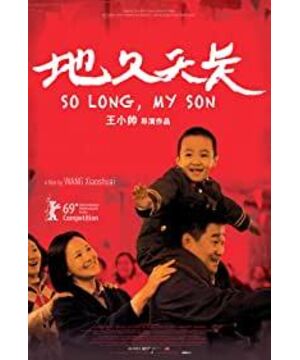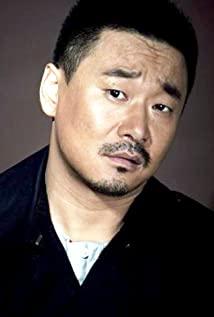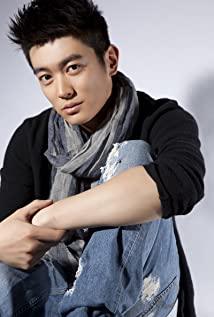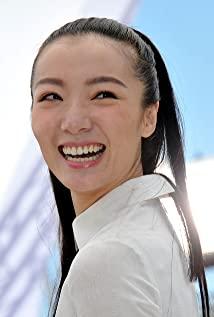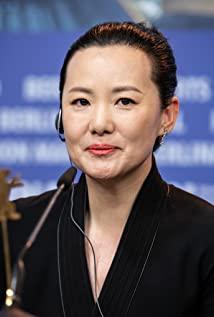1.
My mother has an old classmate, I call her Aunt Hong. Aunt Hong has knowledge and temperament. She has achieved the level of director in the quality inspection system of Z city. On weekdays, my mother doesn't talk about her very often, but only a few times she talks about how prudent and graceful she is in doing things, so I'm quite impressed.
One day, probably when I was in college, my mother said at dinner, "Hong's child is dead. He has been treated for leukemia for a year, but it still doesn't help." I remember my mother's calm and sad tone when she said this, and a long silence after that. I heard a sigh from my father and nothing after that, their generation had their own unique way of expressing grief.
Of course I know that under the one-child policy of our generation, this is Auntie Hong's only child. Aunt Hong and her husband are busy on weekdays and have limited company with their children. The children love to play computer games, and their grades are not ideal. But Aunt Hong is eager to have her son Jackie Chan, from going to a private school to asking for a tutor, she has no less trouble. Finally, the child was admitted to the university, but leukemia was found out, and the treatment for a year was still in vain.
Soon the New Year was approaching. One day, my mother said to me, "I don't even know how to send you a New Year's text message to Aunt Hong. I can only wish her good health. 'Happy New Year' is not suitable, 'Family reunion' 'I don't even dare to mention it. But the more you go around and don't mention it, the more you wait to mention it. I think your Aunt Hong will definitely have a hard time this year..."
That's right, the lights and the steaming heat of the house have nothing to do with her. She is alone, and her eyes are full of sadness. How should she celebrate the New Year?
Therefore, the first episode of "Long Time, Long Days" made me cry. It was New Year's Day. Jasmine went to visit Yaojun and Liyun who lost their children. The lights in the room were dim, and the time was stagnant and quiet. When the firecrackers rang outside, Yaojun and Liyun shuddered, as if they were frightened... Then they really felt that this city really couldn't stay any longer. Everything here reminded them of the tragedy they had once, leaving them with no way to escape. , so they chose to flee on New Year's Eve.
I think I understood why they fled and was struck by that authenticity.
"Real" is probably the most impressive thing this movie has left me. The explanation of the details in the play makes the film feel extraordinarily real, and Wang Jingchun and Yong Mei use their best-actor and queen-level performances to make these details more authentic and credible. They made me feel that this is really a portrayal of countless families who lost their only child in China.
2.
Maybe because of my gay status, I think a lot about my children.
I discovered my true identity in high school, couldn't identify with it, was in a stage of self-loathing, and thought about suicide. At that time, I silently asked in my heart: If I commit suicide, what will happen to my parents? The grief brought by compassion made me cry in the middle of the night and wet the pillow, and I didn't know whether to sympathize with myself or my parents. Gradually growing up, I learned to be happy with myself, but I have to think, if I don’t have children in the future, will I be considered unfilial? How will you spend the evening? Will you grow old alone?
So I really think: How can people live without children for various reasons? What are so many families who have lost their only child in China facing?
"Long Time" contributed a sentimental and righteous version. Yaojun and Liyun, who lost their only child, adopted their children and left their hometowns to live a simple and hard life. Despite the stealing, mischievousness of their adopted children, and despite their lives soaked in grief and continuing in hopelessness, they did not give up on life and on each other. Even when Jasmine, who had always been fond of and guilt for Yaojun, accidentally conceived Yaojun's child and planned to give birth, Yaojun did not agree. Liyun tries to commit suicide, but Yaojun saves her. He gave up his chance to be a father again and chose to stay by Liyun's side.
This is an episode that really moved me. Behind this, there is affection and love.
China is a country with a strong sense of clan. I have seen too many families focus their lives on their children. The relationship between husband and wife is thin, and even if there are no children, it is difficult to continue. However, Yaojun and Liyun in "Long Time" are not like this. After losing their independence, they did not give up on each other, but still chose to live with a tenacious attitude and support each other. Yaojun gave up his chance to have children again for Liyun's sake, indicating that in his heart, his wife is more important than children. This concept is rare in all kinds of Chinese works, so it seems to have a lot of weight.
The "kindness" behind this kind of affection and affection is another reason why this movie touched me. In the story, whether Yaojun chooses to accompany Liyun to give up the child, or Yaojun and Liyun's forgiveness for the Haiyan family, I can see the kindness behind this, which can be called "great".
So, in a sense, I even think Liyun has her luck. In contrast, Aunt Hong’s life trajectory after losing her only child is even more embarrassing: her husband was in pain after losing his only son, and he always wanted to have another child to continue his family’s three-generation single-handed incense. Helpless, Aunt Hong is no longer young and unable to bear children. In the end, his husband chose to divorce, and soon found a new wife in her thirties and gave birth to a child. Aunt Hong was left alone, and she lost her only and her marriage.
All this, in just over three years, Aunt Hong's previous decades of life have been completely overturned. How cruel.
3.
At the end of the film review, I would like to talk about Aunt Hong's life. Mother said: One summer, several old classmates felt that they had to go to Z city to see Aunt Hong, so they bought something and drove. But after going there, they looked at each other, still not knowing how to comfort them. In the awkward silence, Aunt Hong said, "I know all the old classmates are worried about me, I'm fine, I'll sing a song for everyone." Then she sang a song they used to go to school together.
My mother said: Originally, we went to comfort her, but later, it was her who came to comfort us. She said that it was not that she had never thought about adopting a child, but she felt that she was getting old too, and that even if she adopted her, she could only be raised as a grandson, and the child would have a lot of emotional deficits. Why not let go of this thought and live your life.
This legendary Aunt Hong, the rest of her life went like this: she sold the house where she grew up with her children, bought a new property in the suburbs, decorated it meticulously, and arranged it properly and interestingly. At the age of 60, he joined the local senior university dance troupe, with a slender figure like a girl. She didn't give up on herself. This makes me feel relieved.
Decades after the WG, some people gradually forgot about the mutilation of intellectuals. But Zhang Yihe disagreed, so she wrote a book "The Past Is Not Like Smoke". Yes, the wounder may be able to forget lightly, even without reflection; but what about the wounded? There is no past for their stories, and their pain continues.
Now that the country has liberalized the one-child policy, perhaps in a few decades, the term "families who have lost their only child" will disappear from the pages of history. But what about the grief of every family who lost an only child? Should it be ignored too? I don't think so. Only deep grief can lead to deep reflection. So I think that Wang Xiaoshuai's record of this story is valuable, meaningful, and worthy of respect.
I wish those families who lost their only child to forget this grief, but I hope this grief can be remembered by the times.
View more about So Long, My Son reviews


